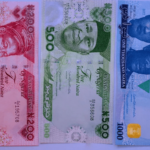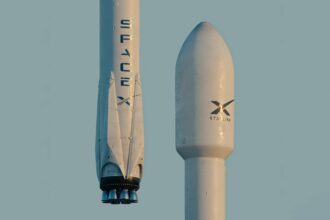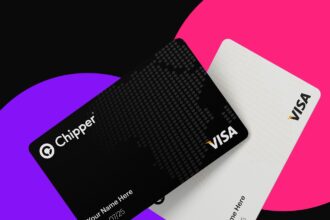In the early hours of February 11th 2025, Nigerians woke up to a seismic shift in the telecommunications landscape: a drastic increase in data bundle tariffs by major mobile network operators like MTN and Airtel. Reports indicate that MTN, Nigeria’s largest telecom provider, raised the cost of its popular weekly 15GB data bundle from ₦2,000 to ₦6,000—a staggering 200% jump—while Airtel followed suit with similar hikes. This tariff adjustment, approved by the Nigerian Communications Commission (NCC) at a capped 50% increase in January 2025, has spiraled beyond expectations, leaving Nigerians grappling with yet another economic burden. As of February 20, 2025, the ripple effects are undeniable, and the need for sustainable solutions has never been more urgent.
The Impact on Nigerians
Nigeria, with an internet penetration rate hovering around 55% and over 84% of its traffic driven by mobile devices, is heavily reliant on affordable data for everything from education and business to social connectivity and entertainment. The recent tariff hike has hit the average Nigerian hard, amplifying an already dire economic situation marked by inflation, currency devaluation, and the removal of fuel subsidies in 2023.
- Eroding Digital Access: For many, the increased cost of data threatens to widen the digital divide. Students of higher instituttions of learning, worry that limited data will curb access to online learning platforms and research resources. With 1GB of data now averaging over ₦600, millions who once stretched small bundles to stay connected may be priced out entirely.
- Straining Livelihoods: Small businesses and entrepreneurs, many of whom rely on affordable data for e-commerce, digital marketing, and customer engagement, face shrinking profit margins. Average Nigerians have noted that while he can still afford the new rates, countless others cannot—a sentiment echoing across a nation where the average monthly salary in urban centers like Lagos is around ₦90,000 ($60).
- Changing Habits: The hike is forcing Nigerians to rethink their internet usage. Streaming music and movies, once a staple of youth culture, may give way to increased piracy or reduced consumption. Social media usage, a lifeline for communication and information, could also decline as users ration their data for essential tasks only.
- Economic Pressure: With Nigeria enduring one of its worst economic crisis in decades, the tariff increase feels like “the latest bout of inflation,”. Coupled with rising food and transport costs, the data hike compounds the financial strain on households already stretched thin.
Ways Forward
While telecom operators cite rising operational costs—fuel, infrastructure maintenance, and a weakened naira—as justification for the hike, Nigerians need affordable, reliable alternatives to stay connected. Here are some actionable ways forward:
- Advocacy for Regulatory Oversight: The NCC must enforce its 50% cap and investigate why operators have exceeded it. Public pressure through consumer advocacy groups and social media campaigns could push for transparency and a rollback to sustainable rates.
- Embracing Renewable Energy: Telecoms could reduce costs by adopting renewable energy solutions, as suggested by the NCC earlier this year. Solar-powered base stations, for instance, could lower reliance on expensive diesel, potentially stabilizing tariffs.
- Data Conservation Awareness: Educating Nigerians on data-saving techniques—like using offline modes, compressing files, or prioritizing low-bandwidth apps—can help stretch limited bundles further until broader solutions emerge.
- Switching to Fiber ISPs: Perhaps the most promising long-term solution lies in transitioning to fiber-optic internet service providers (ISPs) like Legend Internet, ipNX, and FiberOne. Although this option is more applicable to remote workers or households that use large amount of bandwidth.
These providers offer high-speed, unlimited broadband at competitive rates, often outpacing mobile data in reliability and cost-effectiveness. For example:
- Legend Internet: Known for its fiber-to-the-home (FTTH) services in Abuja, Legend provides stable connectivity ideal for homes and small businesses, with plans that rival the escalating costs of mobile data.
- ipNX: A pioneer in FTTH, ipNX delivers speeds up to 1Gbps, catering to both residential and enterprise needs with uncapped, unthrottled plans—perfect for heavy users sidelined by mobile tariff hikes.
- FiberOne: Leading the FTTH market with 27,000 active subscribers by Q4 2023, FiberOne offers affordable, unlimited internet that’s transforming last-mile connectivity in urban centers like Lagos and Abuja.
- Legend Internet: Known for its fiber-to-the-home (FTTH) services in Abuja, Legend provides stable connectivity ideal for homes and small businesses, with plans that rival the escalating costs of mobile data.
Subscribing to fiber ISPs offers a lifeline: faster speeds, no data caps, and predictable pricing that shields users from the volatility of mobile tariffs. While coverage is still expanding—primarily in cities like Lagos, Abuja,Ibadan and Port Harcourt—these providers represent a future where Nigerians can access affordable and uninterrupted internet.
Conclusion
The 2025 data bundle tariff hike is a stark reminder of Nigeria’s economic fragility, but it’s also an opportunity to rethink connectivity. While mobile networks remain essential, the shift toward fiber ISPs could redefine how Nigerians access the digital world—offering reliability and affordability in an era of uncertainty.
For now, collective action, smarter usage, and strategic alternatives are key to navigating this challenge. “The internet is no longer a luxury” ; it’s a necessity Nigerians must reclaim.






